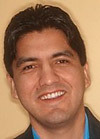Darkness Too Visible
Contemporary fiction for teens is rife with explicit abuse, violence and depravity. Why is this considered a good idea?
By Meghan Cox Gurdon
Pathologies that went undescribed in print 40 years ago, that were still only sparingly outlined a generation ago, are now spelled out in stomach-clenching detail. Profanity that would get a song or movie branded with a parental warning is, in young-adult novels, so commonplace that most reviewers do not even remark upon it.
Yet it is also possible—indeed, likely—that books focusing on pathologies help normalize them and, in the case of self-harm, may even spread their plausibility and likelihood to young people who might otherwise never have imagined such extreme measures. Self-destructive adolescent behaviors are observably infectious and have periods of vogue. That is not to discount the real suffering that some young people endure; it is an argument for taking care.
I've argued before that glorifying violence, racism, misogyny, and so forth helps normalize them. But that's a far cry from presenting "pathologies" in an objective or realistic way. There's a huge difference between showcasing murderers, rapists, and vigilantes and showing the ugly consequences of their actions. It's all the difference in the world.
Sherman Alexie responds
Gurdon mentions The Absolutely True Diary of a Part-Time Indian, Alexie's fictional take on his childhood, as an example of the books she's talking about. As we've seen, some schools have banned the book because they can't handle its "adult" themes and language.
Apparently Alexie was asked or volunteered to respond to Gurdon's essay. I'd say he nailed it:
Why the Best Kids Books Are Written in Blood
By Sherman Alexie
Does Ms. Gurdon honestly believe that a sexually explicit YA novel might somehow traumatize a teen mother? Does she believe that a YA novel about murder and rape will somehow shock a teenager whose life has been damaged by murder and rape? Does she believe a dystopian novel will frighten a kid who already lives in hell?
When I think of the poverty-stricken, sexually and physically abused, self-loathing Native American teenager that I was, I can only wish, immodestly, that I’d been given the opportunity to read “The Absolutely True Diary of a Part-Time Indian.” Or Laurie Halse Anderson’s “Speak.” Or Chris Lynch’s “Inexusable.” Or any of the books that Ms. Gurdon believes to be irredeemable. I can’t speak for other writers, but I think I wrote my YA novel as a way of speaking to my younger, irredeemable self.
No, they are simply trying to protect their privileged notions of what literature is and should be. They are trying to protect privileged children. Or the seemingly privileged.
I haven't read The Absolutely True Diary of a Part-Time Indian yet, but I have read Laurie Halse Anderson’s Speak. It's a great book about the consequences of teenage rape. Other than a moment of violence when the girl finally confronts her rapist, there's nothing objectionable. Unless you object to talking about rape rather than keeping it a secret, as many people do.
In high school, I read such works as:
Macbeth
Hamlet
The Adventures of Huckleberry Finn
To Kill a Mockingbird
Catcher in the Rye
A Separate Peace
1984
Darkness at Noon
Crime and Punishment
Billy Budd
To Kill a Mockingbird is about a rape, and the other books include murder, prejudice, homosexuality, political executions, and other "adult" topics. They all offered serious discussions of the issues, not pandering or sensationalism. Some were a little scary to my young self, but I managed to get through them. And I'm undoubtedly better for having read them.
Speak is probably in the lower half of "darkness" compared to the books I listed. I bet Absolutely True Diary is too. I wouldn't give them to elementary-school kids, but we're talking about teenagers. If high-schoolers could handle Crime and Punishment 35 years ago, they can handle the dark, "scary" books published for teens today.
For more on the subject, see Absolutely True Diary Challenged Again and Absolutely True Diary Still Banned.


5 comments:
and how many teens devour horror books like Stephen King for example. Stephen King books, as well as the supernatural bits deal with murder, domestic violence, drug and alcohol abuse, child abuse etc.
Now you're speaking my language. There's been a lot of discussion about this topic on children's writer forums and blogs. Here's one about the article itself: WSJ article discussion
And here's our response to Alexie's response: Alexie's response It's clear to see from this post that we all love Sherman Alexie right now. True Diary is a great book and it astounds me that it's been banned or that people find it offensive.
Adding to what Jaine said, when I was younger I skipped over the kids books and went straight on into adult horror and mysteries. And look at me, I turned out okay.
What? Why are you laughing? :)
Believe it or not, that book is being read in Eastern Europe.
Clue: Just because Twilight has "vegetarian" (You keep using that word...) "vampires" doesn't make it dark. It's actually quite sparkly.
As a preteen, I ate up mysteries and horror, eventually getting into cosmicism. Did it damage me? No. Nor did my interest in tragedy.
Even the concept of things I loved as a child getting darker hasn't hurt me; I loved when Cartoon Network showed Neon Genesis Evangelion.
I adore "The Absolutely True Diary of a Part-Time Indian" and even bought it for my niece. Gurdon severely underestimates young readers.
Post a Comment